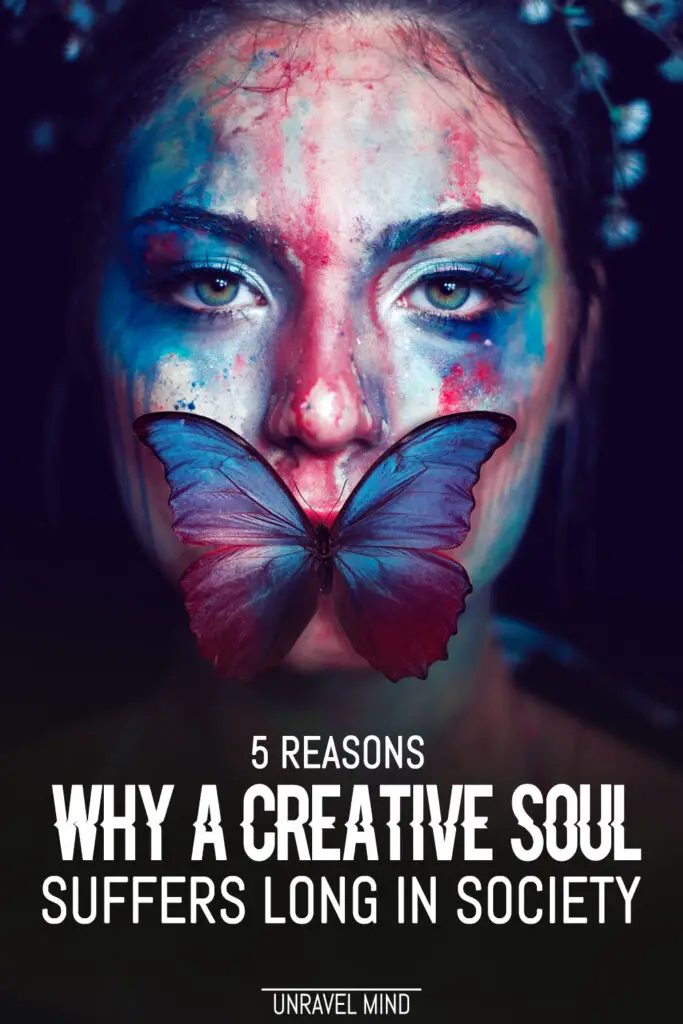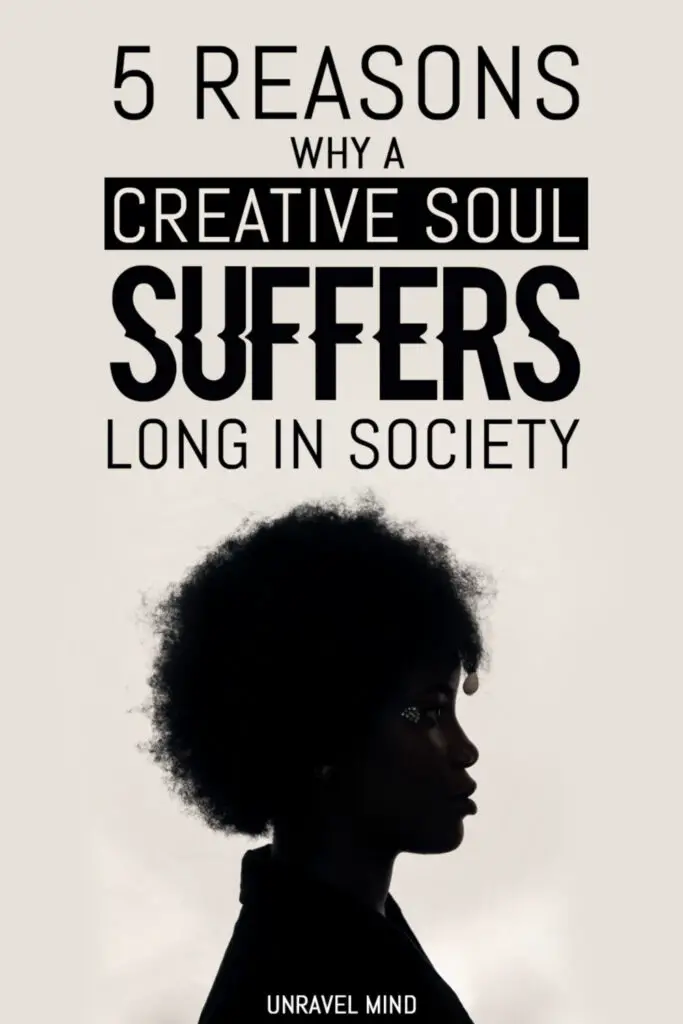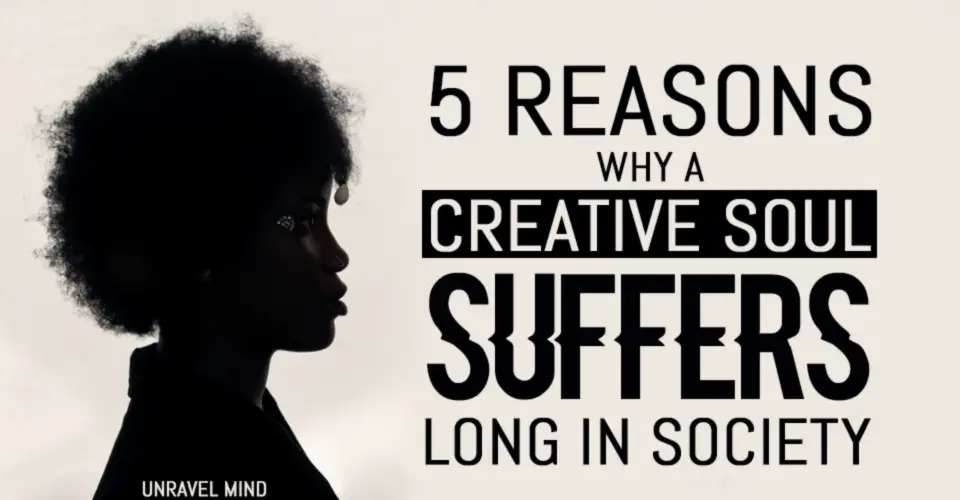Try to visualize a world without all the surrealistic creations around you which are the brainchildren of creative personalities across the world. Be it the theme cafe you love visiting, or the exquisite paintings on your drawing room wall, or writers whose works keep you turning the pages. Without creativity, the world will be a drab place to be in. Creative people are exceptionally gifted individuals with the ability to experience, interpret and express emotions more comprehensively than others. Naturally, they feel deeper, think harder, and often understand better than others do. It is their sheer eccentricity and lack of reason that attracts us to them. But this world seems to be too cruel for such sensitive, intensely passionate souls to survive without paying dearly for it.
Several renowned artistic personalities have long suffered in silence, only channelizing their agony through their creations. Be it Vincent Van Gogh who lost his sanity while putting his ‘heart and soul’ into his works, Edvard Munch whose life was like a dark alley filled with loneliness and trauma, or Sylvia Plath who couldn’t bear with her suffering, only having to free herself of it at her own mercy.
These very people prick at our inner creativity and inspire us to pick up the pen or the brush. We can’t help but romanticize their pieces but hardly are we equipped with the emotional intellect to fathom the magnitude of anguish they had to endure in their lifetime. It’s sad how some of the most artfully appealing pieces are the outcomes of inner torment.
It’s almost a stereotype that artists are people with madness, someone who has been signed by the harshness of life. So why is it that a creative person has to suffer more times than not? Are creatives more susceptible to afflictions?
1. They are wired differently:
Creativity has long drawn the attention of scientists and researchers have tried to link creativity with the suffering of the mind. But is the link merely anecdotal or is it factual? Indeed, many intriguing findings state that creative cognition is different from other cognitive abilities. Studies relating to the brain activities of creative people revealed that they take in a lot of information and are not able to filter out unwanted extraneous details. In sense, they are often bombarded with stimuli that they process all at once. S. B. Kaufman, an American psychologist says that creative cognitive ability involves opening the floodgates to help take in as much information as possible, turning those bizarre connections into productive ideas. Creative ability is all about being able to make meaningful associations out of those pieces of information.
2. They are ahead of their times:
Creatives see no reason or rules. They let their intuition guide their senses. Hence they come up with pieces that are revolutionary for their era. This is why their voices are often left unheard, their percipience disparaged. Many of such creatives have never been acknowledged or valued for their brilliance during their living days. They have only been recognized and worshipped after they have long rested in their graves, which is in itself the most disappointing part of being an artist with vision but in a time full of unappreciative airheads. They struggle hard to make a mark but in vain.
3. They ruminate on their pain:
Pain is an integral part of everyone’s lives. Creative people feed on these painful experiences to curate artistic ideas. Pain for creative people is the source of inspiration, their muse. Take into account what Kurt Cobain said “Thank you for the tragedy. I need it for my art.” They go over and over their painful emotions, past wounds and relieve them to channelize them through their works. Without being able to feel those profound emotions, artists fail to reach the pinnacle of their creative gratification.
4. They often have some sort of mental illness:
There are so many instances of genius artists who have suffered from mental disturbances that the link between creativity and mental illness almost seems obvious. But is it so? Do creatives lose their minds in the process of creating or do mental illnesses intensify creativity? The results of studies that tested these hypotheses are clearly controversial. Many artists have had a history of trauma, neglect, and abuse in childhood and their later lives suffered from loneliness, depression, schizophrenia, personality disorders, and bipolar disorders.
One such study showed that writers were more likely to have bipolar disorder than non-writers but again such results are highly criticized due to the lack of its generalisability. Many creatives even deter from seeking treatment for such mental illnesses to endure the flow of creative ideas. Mental health issues in certain levels can, indeed, help to enhance creative thinking but during severe episodes of disorders, the creativity drops to lower levels.
5. They are seldom supported by society:
It’s said that creativity can fill the soul but not an empty stomach. Creative people in the fields of visual, auditory, or writing art have to struggle a lot in their early days to create a strong foundation under their feet. Not to mention, every success story is backed by failures but creative people’s endeavors are often even resisted by their close circle. Society rejects them several times before it embraces them for their creations and contributions. To this day, it takes an exceptionally extraordinary artist to fare well in one’s field. Mediocrity in creativity is hardly tolerated by society.
Despite all of these, creative people cannot be stopped. They create on their will and whims, they create for their utter passion, they create for themselves. Suffering is, perhaps, small price artists are willing to pay to taste insanity.
Read more
Why We Should Give More Attention And Value To The Writers
Pin it




